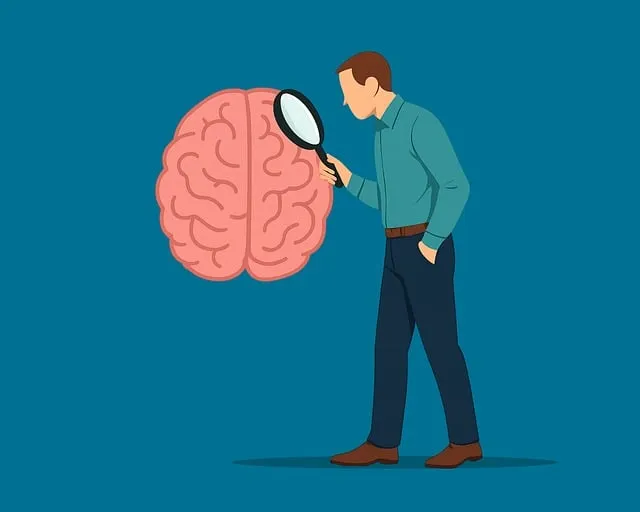Mental wellness self-assessment tools, like those adopted by Kaiser Permanente, improve access to care but often lack cultural sensitivity. Innovative, empathetic assessments are crucial for personalized interventions and fostering resilience. Kaiser's holistic framework integrates mindfulness, cultural sensitivity, and evidence-based strategies for superior mental health support. Effective, user-friendly, culturally sensitive tools, regularly updated and accessible online, can reduce stigma and enhance emotional well-being through early intervention and tailored resources.
Mental wellness self-assessment tools play a crucial role in bridging the gaps within mental health care, enabling individuals to proactively manage their psychological well-being. This article delves into the development of such tools, drawing insights from Kaiser Permanente’s comprehensive framework. We explore best practices and considerations for creating effective self-assessment tools while highlighting the impact of implementation on enhancing access to mental health support. By leveraging evidence-based approaches, these tools promise to revolutionize mental wellness management, setting a new standard in superior mental health care.
- Understanding the Need for Self-Assessment Tools: Exploring the Gaps in Mental Health Care
- Kaiser Permanente's Approach: A Comprehensive Framework for Mental Wellness Assessment
- Developing Effective Self-Assessment Tools: Best Practices and Considerations
- Implementation and Impact: Enhancing Access to Mental Health Support through Self-Assessment
Understanding the Need for Self-Assessment Tools: Exploring the Gaps in Mental Health Care

Mental wellness self-assessment tools are crucial components in enhancing access to mental healthcare services and fostering individual well-being. However, navigating the complexities of mental health requires more than traditional diagnostic methods. As organizations like Kaiser Permanente mental health departments strive for superior care, they identify gaps in current assessment practices. Traditional approaches often fall short in capturing the nuanced experiences of individuals, particularly when it comes to understanding the psychological landscape within diverse communities.
The need for innovative self-assessment tools arises from a desire to bridge these gaps and improve patient outcomes. By incorporating empathy-building strategies into self-assessment protocols, mental health professionals can better gauge individual needs. This involves creating spaces where clients feel heard and understood, thereby encouraging honest self-reflection. Furthermore, integrating risk assessment techniques allows for proactive identification of individuals at risk, enabling the development of personalized interventions and promoting a proactive approach to mental care. Additionally, encouraging patients to establish meaningful self-care routines can significantly contribute to their overall mental health and resilience.
Kaiser Permanente's Approach: A Comprehensive Framework for Mental Wellness Assessment

Kaiser Permanente has established itself as a pioneer in mental wellness assessment with a comprehensive framework that encompasses various aspects of an individual’s well-being. Their approach recognizes that mental health is intricately linked to physical health and overall lifestyle, making it a holistic process. The organization’s tools go beyond traditional symptom checks by integrating factors like mindfulness meditation practices, cultural sensitivity in mental healthcare practice, and promoting healthy coping mechanisms.
This superior methodology involves personalized assessments tailored to meet diverse needs. By considering cultural backgrounds and incorporating evidence-based practices such as mindfulness meditation, Kaiser Permanente ensures inclusive and effective mental wellness support. This comprehensive strategy not only aids in identifying anxiety relief strategies but also fosters long-term resilience and emotional well-being.
Developing Effective Self-Assessment Tools: Best Practices and Considerations

Developing effective self-assessment tools is a crucial step in promoting emotional well-being and mental health, especially when guided by best practices and strategic considerations. Organizations like Kaiser Permanente have recognized the value of these tools in their mental health services, focusing on accessibility and precision. Superior self-assessment tools should be user-friendly, allowing individuals to comfortably evaluate their mental wellness without barriers or stigma. Incorporating interactive features and clear language can enhance engagement and data accuracy.
Best practices emphasize validity, reliability, and cultural sensitivity. Tools should align with evidence-based practices and incorporate feedback from diverse populations to ensure inclusivity. Regularly reviewing and updating these assessments is essential, considering the dynamic nature of mental health research and evolving societal needs. Additionally, integrating them into broader Mental Wellness Podcast Series Production or online platforms can increase reach and accessibility, contributing to impactful Mental Illness Stigma Reduction Efforts.
Implementation and Impact: Enhancing Access to Mental Health Support through Self-Assessment

The implementation of self-assessment tools for mental wellness can significantly enhance access to mental health support. These tools, designed to improve cultural sensitivity in mental healthcare practice, cater to individuals who may be hesitant or unsure about seeking professional help. By encouraging proactive evaluation and providing resources tailored to diverse needs, they foster a more inclusive and accessible approach to mental healthcare—a crucial aspect emphasized by Kaiser Permanente mental health initiatives.
Self-assessment plays a pivotal role in early intervention, especially when integrated into public awareness campaigns development. It allows individuals to recognize signs of distress or mental illness, encourage open conversations about mental health within communities, and reduce the stigma associated with seeking support. Moreover, integrating these tools into healthcare provider cultural competency training ensures that professionals are equipped to address diverse populations’ unique needs, fostering a more supportive and responsive mental healthcare environment.
The development of mental wellness self-assessment tools is a crucial step towards improving access to quality mental healthcare. By bridging the gaps identified in existing systems, as exemplified by Kaiser Permanente’s comprehensive framework, we can empower individuals to take an active role in their mental well-being. These tools, when implemented effectively, have the potential to enhance early intervention and support, ultimately leading to better outcomes. With continuous innovation and a user-centric design approach, self-assessment can become a powerful game-changer in the field of mental health, ensuring that everyone has access to superior mental wellness resources.






